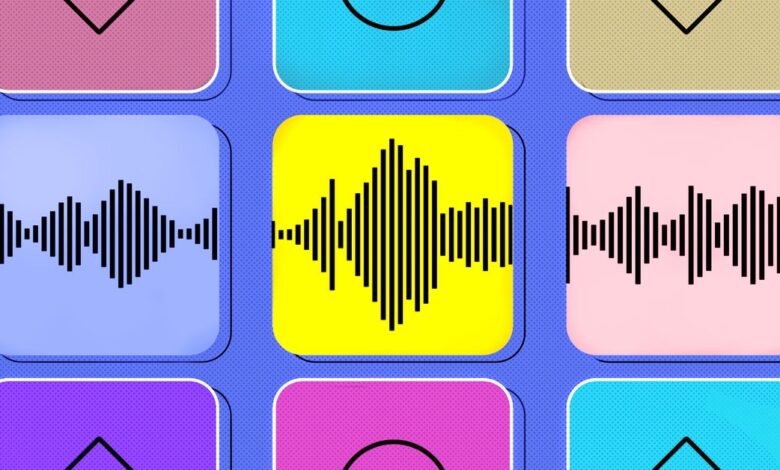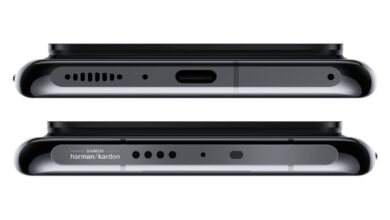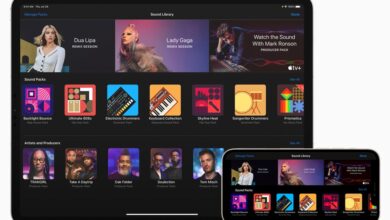Clubhouse and its clones have an accessibility problem

[ad_1]
Clubhouse took off last year and spurred competitors to add their own voice chat rooms that can host hundreds if not thousands of people. But the hit app has had a serious problem from the beginning, consistently pointed out by accessibility advocates: it excludes disabled people, with the most obvious issue being that the audio-based app doesn’t have built-in captions. This makes it unusable for deaf people and difficult to use for people who are hard of hearing or struggle with audio processing.
Companies will often mention that their products are still in development or beta testing when discussing accessibility options, but the ideal development process involves working with disabled people from the earliest design stages. Tech accessibility has improved in major ways over the years, but it’s still frequently tacked on well after products are launched. The reality is that disabled people often have to use products and services that don’t have even the bare minimum of features that suit their needs.
Clubhouse “excludes millions of people around the world who are Deaf and hard of hearing,” says Adam Pottle, a Deaf author. “We cannot access these conversations, and it’s especially dispiriting because many of the conversations taking place on this platform are fascinating and cultural and timely, yet we can’t take part in them.” Pottle notes that a January Clubhouse blog was titled “Welcoming More Voices,” but made no mention of transcription, sign language interpretation, or captioning.
Now, with a number of competitors working on social audio functions that are similar to Clubhouse, it’s a prime chance to step back and look at how each one approaches accessibility. Some companies, like Twitter’s Spaces, have more detailed accessibility strategies than others. But others, like Discord, already have voice or video functions that are at least partially inaccessible and didn’t have many details to share. Here’s a non-exhaustive list of current and upcoming Clubhouse competitors and how they stack up.
Clubhouse
Availability: Available on iOS and Android, invite-only
Background: Besides the lack of captioning, Clubhouse also doesn’t support text resizing, which is essential for many people with low vision. Though it was exclusive to iOS until last month, it didn’t support VoiceOver, Apple’s screen reading software, until February.
Accessibility details: “Our goal has always been to build Clubhouse for everyone,” says a Clubhouse spokesperson. Clubhouse says it is “grateful” for the feedback from disability-related clubs that have formed within the app, and says it has been working closely with The 15%, a club for disabled people and allies. Clubhouse says it plans to introduce closed captioning “in the near future.”
Twitter Spaces
Availability: Accounts with over 600 followers can host, anyone can listen
Background: Twitter faced criticism last year after introducing voice tweets without captions, which spurred the company to create accessibility teams and be more transparent about its accessibility efforts.
Accessibility details: Spaces has an option to turn on automatic captions, though they’re not consistently accurate or easy to read. Buttons within Spaces are labeled so that screen readers can identify the function of each one. Twitter says it’s working on improvements, including making captions more accurate, enabling scrollback and pausing, making the color and size of captions customizable, and possibly adding a text input option in addition to speech.
Discord Stage Channels
Availability: Only in Community servers
Background: Discord already had voice channels, which don’t have built-in captioning. An accessibility section with options for reduced motion, autoplay, and text-to-speech was added to the user settings menu in late April. It already supports screen readers, keyboard navigation, and third-party captioning and transcription.
Accessibility details: Like voice channels, Stage Channels currently don’t have a built-in option for captions. A spokesperson said Discord is working on more ways to make Stage Channels accessible.
Reddit Talk
Availability: Currently in initial testing with subreddit moderators, tentative plans for larger launch in coming months
Background: Some blind people favor Reddit over other social platforms because so much of it is text-based. But images still don’t have alt text, which has led to an entire subreddit of volunteer transcribers who write image descriptions and video captions for as many posts as they can. Reddit has had livestreams since 2019 but so far hasn’t had built-in captions.
Accessibility details: The version that’s in testing doesn’t have captioning. Reddit says accessibility, possibly including caption support, is a priority for the official launch but didn’t provide any additional details.
Facebook Live Audio Rooms
Availability: Expected across Facebook, including Messenger, this summer
Background: Facebook enabled caption support for Facebook Live in 2017 and added auto-captions last year. It also made improvements to its screen reader support, added scalable font sizes last year, and updated its automatic alt text in January.
Accessibility details: A Facebook blog post says captions will be offered for Live Audio Rooms and other upcoming audio features. Facebook didn’t respond to a request for further information about plans for accessibility.
Slack audio meetings
Availability: Currently in testing
Background: Slack’s accessibility settings include screen reader support, keyboard navigation, adjustable zoom levels, and toggles for emoji movement.
Accessibility details: Slack confirmed its audio feature will have captioning, livestream transcription, and screen reader support.
Other platforms
There are even more platforms with Clubhouse-like audio rooms in the works. LinkedIn didn’t share any details about its audio plans, but it did add automatic captioning to LinkedIn Live earlier this year. Fireside, a combination podcast and live audio app planned for launch this year, says in a statement that providing accessibility options is “hugely important,” and that it will have multiple features including audio transcription. Spotify didn’t respond to a request for information about accessibility plans for its upcoming live audio conversations.
So far, none of these platforms make for perfect templates of accessibility, and it’s hard to find popular sites that meet every single web accessibility standard. There are always many elements to factor in because disabilities are so diverse. Screen reader compatibility doesn’t mean sites and apps are easy to use without needing to see the screen. Automatic captions are never completely accurate, especially for speakers with accents and speech differences. There are other considerations like color contrast, notification sounds, and overall layout. A mobile app might be accessible in ways that a desktop app or web version isn’t, and vice versa.
Disabled people have said over and over that accessibility needs to be considered from multiple angles at every step of development. A real commitment to accessibility looks like hiring disabled people, continually seeking feedback, and being transparent about what works and what doesn’t. It’s easy for companies to release vague statements saying they value accessibility, but they have to prove it by actually putting in the work to make their products usable for everyone.
[ad_2]
Source link





